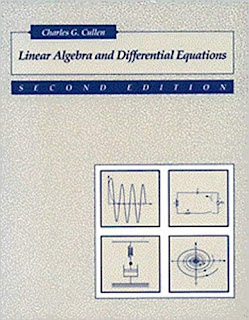This is going to be a story of how I learn new things and come to understand them well enough to put that knowledge into practice. I imagine these levels of understanding are similar for everyone, but I can't be sure. I'm just going off of my own experience. It's possible that for any given person or any given skill, learning could stop at any point where they've gleaned enough usefulness and the desire to continue learning has been exhausted.
However, if that desire to learn is strong, learning can develop through three main levels of understanding. The first level is the basic what to do to accomplish a task. The second level delves deeper into how things work in context to solve problems in the domain. The third and final level explores why things work the way they do. The answers to those three simple questions: what, how, and why encompass all of the understanding that can be gained from any skill, subject, or domain. To ground this discussion we'll focus on programming to make things more concrete. What is involved in each of these levels of understanding when learning how to program?
Musings on software development, technology, and their interconnections with a programmer's everyday life
Tech Book Face Off: Introduction to Algorithms Vs. Linear Algebra and Differential Equations
This Tech Book Face Off has been a significant undertaking, more so than I originally imagined. It took over ten months to get through these two books, slowly chipping away at them in my free time during the evenings until I had finally read all of the material and worked all (well, nearly all) of the problems. As a result it's been nearly a year since my last book review, and working through these books was quite the experience. The goal at the outset of this project was to revisit a couple of textbooks from college, things that I felt I should brush up on. I wanted to see how much I retained of these subjects and how much I had forgotten that may still be useful. I chose Linear Algebra and Differential Equations by Charles G. Cullen because I remember having breezed through this subject in college without giving it my full attention. It was easy at the time, and I coasted through the course without, I thought, giving it the effort it deserved. Then I picked up Introduction to Algorithms by the famed group of professors known throughout the programming world as CLRS. I love algorithms, and I have fond memories of this course and working through this book, so I wanted to go through it again in its entirety, picking up the subjects that we had skipped in the course as well. What follows is the perspective of one programmer rereading a couple of old textbooks fifteen or so years later.
 | VS. |  |